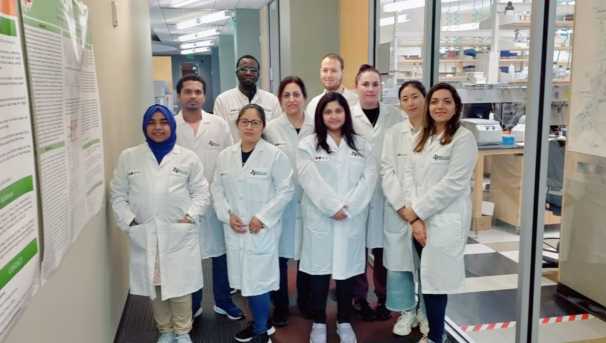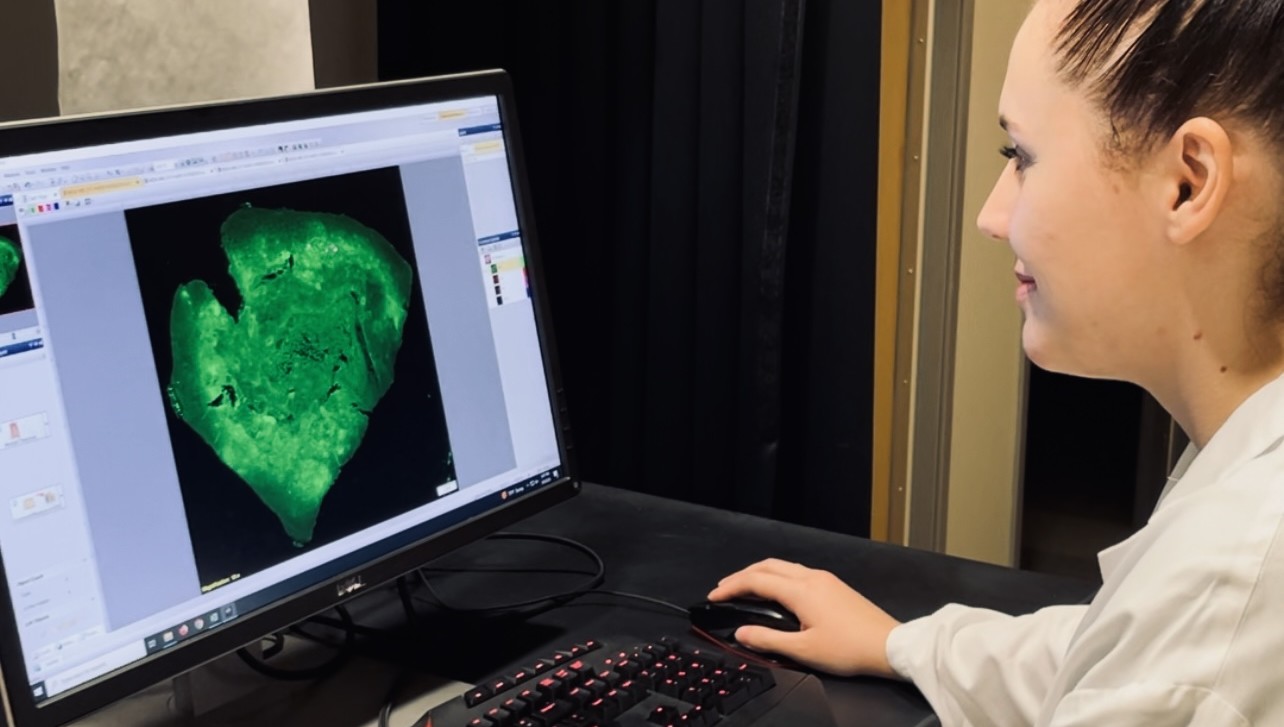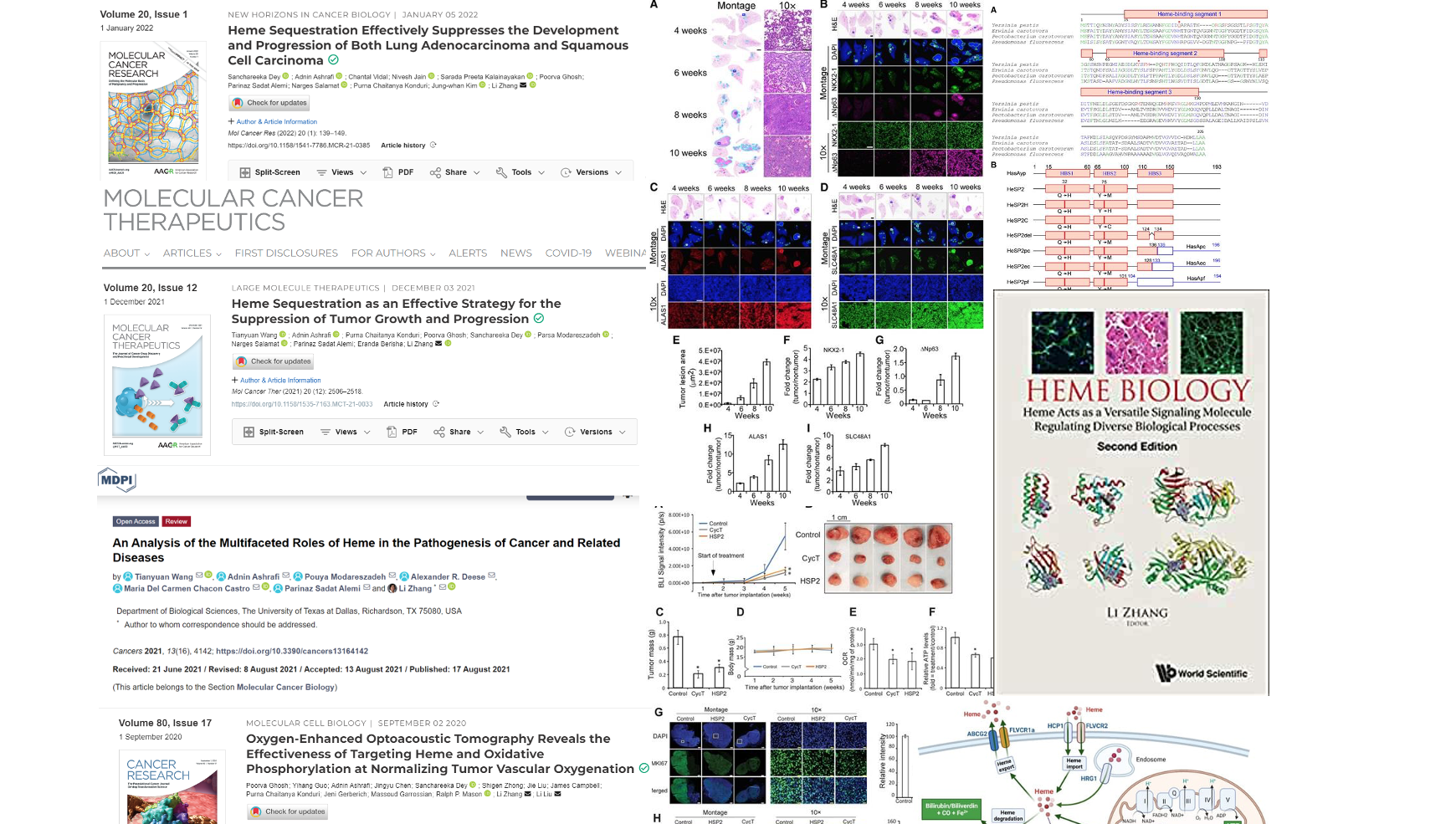Support breakthrough cancer therapy study at UT Dallas
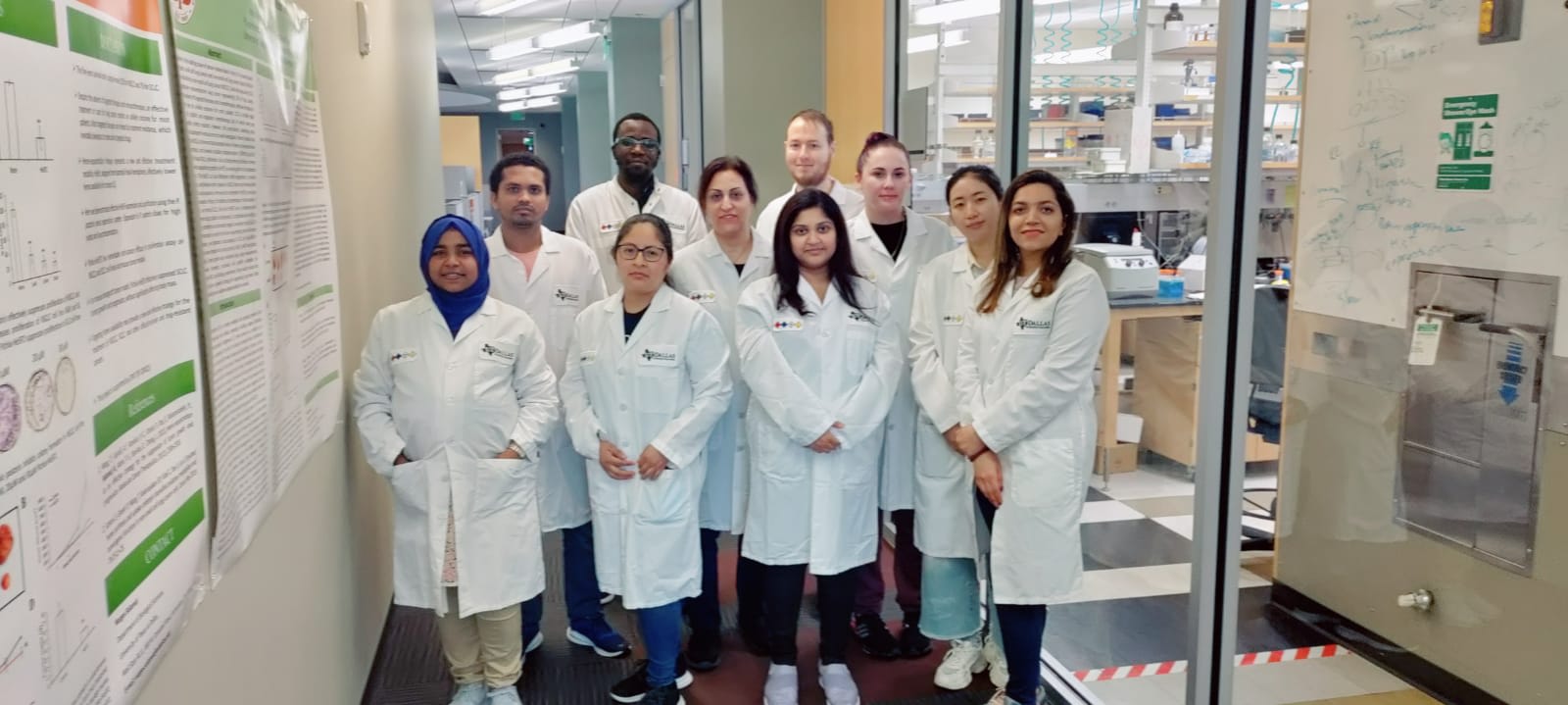
Dr. Li Zhang’s lab is crowdfunding to raise money to test the application of a new class of biologics in the treatment of triple-negative breast cancer (TNBC).
ABOUT CANCER RESEARCH IN OUR LAB
Cancer is the leading cause of death worldwide, accounting for nearly one in six deaths. Our lab carries out research aiming to dramatically improve the management and cure of hard-to-treat, recalcitrant cancers. Crucially, recent studies have discovered a shared vulnerability in therapy-resistant cancers: Resistant cancer cells or stem cells require elevated mitochondrial respiration or oxidative metabolism (OXPHOS) to generate cellular energy for survival, and targeting OXPHOS overcomes their resistance.
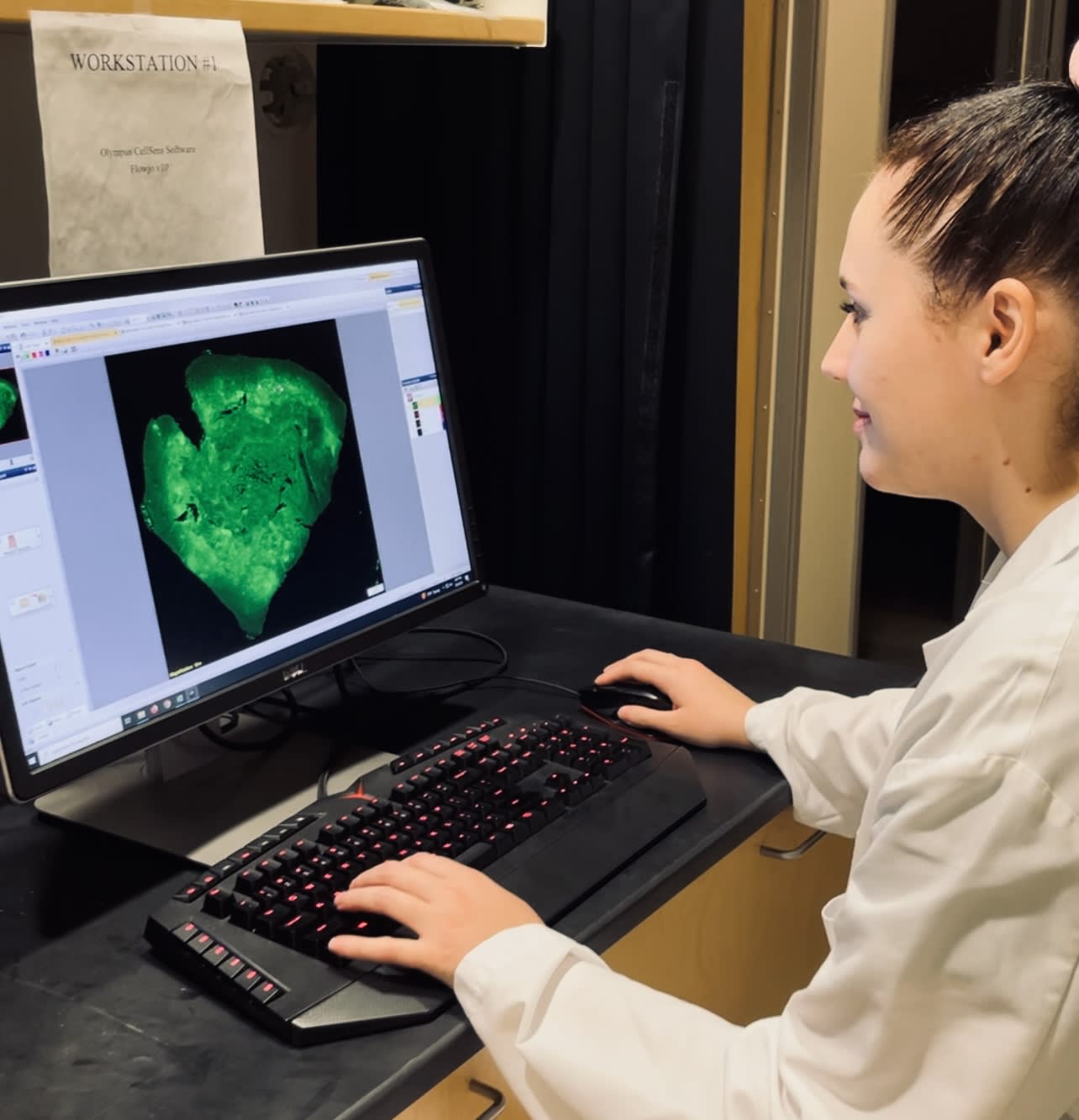 Our lab has discovered that elevated heme uptake and synthesis underpin intensified OXPHOS in resistant lung cancers, as heme is essential for the functioning of OXPHOS enzymes. Our lab has also engineered a novel class of biologics, called heme-sequestering proteins (HeSPs), that bind heme with ultra-high affinity and target OXPHOS in resistant lung cancers to suppress cancer growth. Further, our research has demonstrated that HeSPs possess the unique capability to normalize tumor microenvironment (that is, to normalize tumor vasculature, enhance tumor oxygenation, and alleviate tumor hypoxia) in resistant lung tumors. Particularly, one promising HeSP, HeSP2, is highly effective in suppressing lung tumors and normalizing tumor microenvironment. Normalized tumor microenvironment should dramatically improve the delivery and efficacy of chemotherapy, immunotherapy, and radiotherapy, while targeting OXPHOS will make resistant cancer cells or stem cells highly vulnerable. In sum, HeSP2 acts in multiple modes to control tumors. Importantly, HeSPs selectively target the unique property of resistant cancer cells without interfering with the functioning of normal cells. Thus, HeSPs are ideal candidate drugs that can be combined with widely used therapies to treat and cure not only lung cancer but also other resistant cancers.
Our lab has discovered that elevated heme uptake and synthesis underpin intensified OXPHOS in resistant lung cancers, as heme is essential for the functioning of OXPHOS enzymes. Our lab has also engineered a novel class of biologics, called heme-sequestering proteins (HeSPs), that bind heme with ultra-high affinity and target OXPHOS in resistant lung cancers to suppress cancer growth. Further, our research has demonstrated that HeSPs possess the unique capability to normalize tumor microenvironment (that is, to normalize tumor vasculature, enhance tumor oxygenation, and alleviate tumor hypoxia) in resistant lung tumors. Particularly, one promising HeSP, HeSP2, is highly effective in suppressing lung tumors and normalizing tumor microenvironment. Normalized tumor microenvironment should dramatically improve the delivery and efficacy of chemotherapy, immunotherapy, and radiotherapy, while targeting OXPHOS will make resistant cancer cells or stem cells highly vulnerable. In sum, HeSP2 acts in multiple modes to control tumors. Importantly, HeSPs selectively target the unique property of resistant cancer cells without interfering with the functioning of normal cells. Thus, HeSPs are ideal candidate drugs that can be combined with widely used therapies to treat and cure not only lung cancer but also other resistant cancers.
TRIPLE-NEGATIVE BREAST CANCER (TNBC)
TNBC is an aggressive, metastatic, and drug-resistant subtype of breast cancer. It is characterized by the absence of human epidermal growth factor 2 (HER2), estrogen receptor (ER), and progesterone receptor (PR). TNBC accounts for ~20% of the total breast cancer cases and 83% of disproportionate deaths compared to other subtypes. Thus, novel strategies to optimize therapeutic regimens are urgently needed to dramatically improve cancer survival. Previous studies have shown that targeting OXPHOS is an effective strategy to overcome the resistance of TNBC cells to therapies. 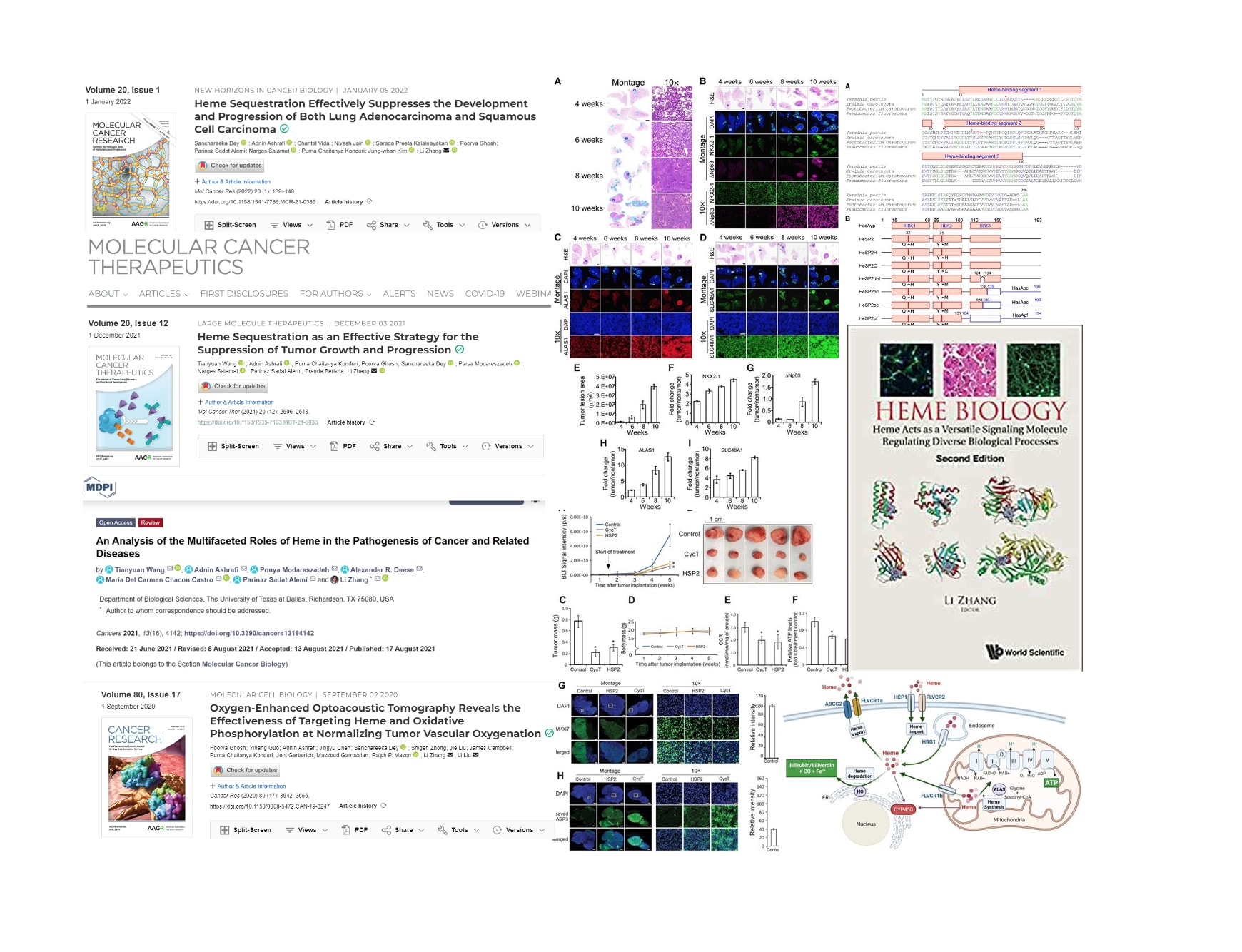
OUR GOAL
We want to raise $5,000 to test the effectiveness of HeSP2 in suppressing the proliferation, migration, and invasion capabilities of two TNBC cell lines, 4T1 and EMT6. The money will be used to purchase supplies to culture TNBC cells, such as serum and cell culture medium. Our stretch goal is to raise an additional $5000 to support preliminary testing in mouse models. These experiments will help doctoral students accomplish their research objectives and train undergraduate students interested in doing original research. Our lab currently enables one post-doctoral scholar and ten doctoral students to carry out active research and trains 25 undergraduate students.

